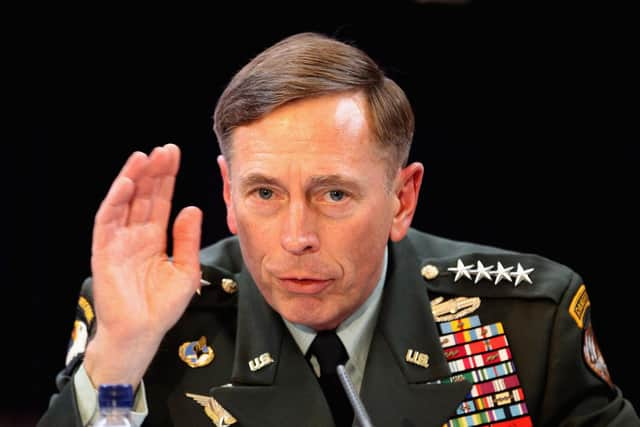General Petraeus: The legal threat to veterans of the Troubles is unfair to those who served their country and it also undermines the morale of those serving now


A very special relationship has been established between our two militaries over more than a century of serving shoulder-to-shoulder in the hardest tests of battle.
I experienced this special relationship personally, during decades of the Cold War in Europe and during operations in the Balkans, Iraq, Afghanistan, and the greater Middle East.
Advertisement
Hide AdAdvertisement
Hide Ad‘Lawfare’ against British soldiers is thus a matter of very real concern to me.


It is arguably as much of a threat to Britain’s fighting capacity as would be a failure to meet NATO budgetary targets, and it risks putting the special relationship under increasing strain.
To be clear, the British military is rightly subject to the rule of law. During armed conflict, all soldiers must follow the principles in the law of armed conflict, which are founded on the concepts of proportionality and military necessity.
The problem the British military has faced in recent years, to which Policy Exchange has properly drawn attention, is the ‘judicialisation’ of conflict and, in particular, the displacement of the law of armed conflict by European human rights law. British soldiers are increasingly subject to a different legal regime than are their American counterparts.
Advertisement
Hide AdAdvertisement
Hide AdThe extension of the European Convention on Human Rights to the battlefield has made extensive litigation against British soldiers inevitable.
This, in turn, risks promoting a culture of risk aversion in the ranks.
In Afghanistan, it undermined the British military’s authority to detain enemy combatants and also to work with the Afghan government and Nato allies.
The unfair pursuit of British soldiers and veterans in the aftermath of operations is particularly concerning.
Advertisement
Hide AdAdvertisement
Hide AdThis practice has caused enormous stress and anxiety on those who are caught up in investigations, sometimes years or even decades after their combat service.
The extent to which those who served decades ago in Northern Ireland, including the highly distinguished soldier-scholar General Sir Frank Kitson, remain exposed to legal risk is striking and appalling.
This is not only unfair to those who have served and sacrificed for their country, it also gravely undermines the morale of those serving now and raises an unnecessary concern for potential recruits.
Lawfare is not an easy problem to resolve. I believe I understand the magnitude of the challenges and issues involved.
Advertisement
Hide AdAdvertisement
Hide AdBut as the only individual to command the coalitions in both Iraq and Afghanistan, as well as US Central Command (responsible for the Middle East and Central Asia), and as one who cherished serving on operations together with British forces for seven and a half of my final ten years in uniform, I strongly believe we owe it to the fighting men and women of this country to protect them from abuse of legal processes.
It will be for whomever forms the UK’s next government and Parliament to decide how best to respond. In that deliberation, the proposals outlined in this paper (for Policy Exchange, see link below) should receive serious consideration.
Restoring the primacy of the law of armed conflict must be a priority if the UK is to remain a country of military consequence on the world stage, as I fervently hope it will.
Moreover, this paper explains how to achieve this end, by derogating from the ECHR and limiting the extra-territorial application of the Human Rights Act 1998.
Advertisement
Hide AdAdvertisement
Hide AdThe paper’s prescription for protecting veterans from abuse in the courts, including measures specific to Northern Ireland, strike me as workable, desirable, and well-judged.
Reform will be controversial; challenge in court is likely.
But the politicians who aspire to lead have a responsibility to defend those who defend the realm. It is a responsibility they should not neglect.
• This is a forward that General David Petraeus wrote to a paper on ‘Lawfare — the judicialisation of war’ by the think tank Policy Exchange. The web version of this article will include a link to the paper. General Petraeus US Army (Ret.), is former commander, United States Central Command and Coalition Forces in Iraq and Afghanistan